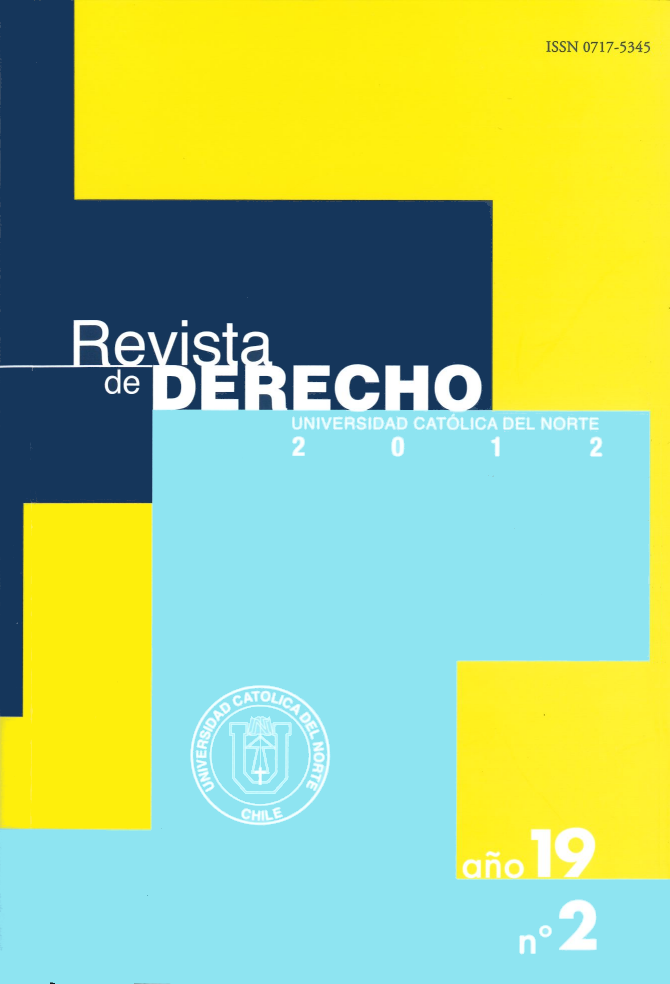Published 2015-04-10
Keywords
- Citizenship,
- National state,
- Democracy,
- Human rights,
- Participation
How to Cite
Abstract
This article briefly exposes an idea regarding the concept of citizenship, in the scope of Constitutional theory, including three elements: length, content, and nature. It continues presenting and analyzing the connection among theories that aim to explain the first of said elements. This is, who the individuals that hold the character of citizens are. Three viewpoints are particularly reviewed regarding the same point: the model of human rights that emphasizes universality; the model of National state that emphasizes the inclusion/exclusion connection, and the socalled democratic model that emphasizes participation, echoing the aforementioned theories development. Always from a theoretical perspective, it is possible to observe the stress between these extension of citizenship models that would explain the dynamical evolution of citizenship during the last century.
Downloads
References
ANDERSON, Benedict (1993): Comunidades Imaginadas (México, FCE).
BELLAMY, Richard (2004): "The making of modern citizenship", en Bellamy, Richard et al (eds.), Lineages of European Citizenship: Rights, Belonging, and Participation in Eleven Nation-states (London, Palgrave Macmillan).
BELLAMY, Richard (2008): Citizenship (New York, Oxford Press).
BÖCKENFÖRDE, EW (2000): Estudios sobre el estado de derecho y la democracia (Madrid, Trotta).
BOSNIAK, Linda (2006): The Citizen and the Alien (New Jersey, Princeton University Press).
COHEN, Elizabeth (2009): Semi-Citizenship in Democratic Politics (Cambridge, Cambridge University Press).
DHAMI, Mandeep (2009): "La política de privación del sufragio a los presos: ¿una amenaza para la democracia?", en Revista de Derecho de la Universidad Austral de Chile N° 22 (2009).
HAMILTON, Alexander, Madison, James y John Jay (2001): El Federalista (México: FCE).
HEATER, Derek (2007): Ciudadanía (Madrid, Alianza).
KYMLICKA, Will (2002): Contemporary Political Philosophy (Oxford, Oxford University Press).
KYMLICKA, Will y Christine STRAEHLE (2001): Cosmopolitismo, Estado-Nación y nacionalismo de las minorías (UNAM, México).
LACLAU, Ernesto y Chantal MOUFFE (1987): Hegemonía y Estrategia Socialista (Madrid, Siglo XXI).
LINKLATER, Andrew (2002): "Cosmopolitan Citizenship", en ISIN, Engin y Bryan TURNER (eds.), Handbook of Citizenship Studies (London, SAGE Publications).
MARKOFF, John (2005): "La problemática histórica de la ciudadanía democrática", en Historia Constitucional N° 6.
MARSHALL, Pablo (2010): "Pena y ciudadanía. Problemas constitucionales", en CAZOR y SALAS (cord.), Estudios Constitucionales (Santiago, Librotecnia).
MARSHALL, Pablo (2009): "El derecho y la obligación de votar" en Revista de Derecho de la Universidad Austral de Chile N° 22 vol. 1, pp. 77-91.
MARSHALL, TH (1997): «Ciudadanía y Clase Social» en Reis N° 79, pp. 297-344.
MILLER, David (1997b): Sobre la nacionalidad (Barcelona, Paidós).
POCOCK, J.G.A. (1995): "The ideal of citizenship since classical times", en BEINER (ed.), Theorizing Citizenship (Albany, State University Press of New York).
ROUSSEAU, Jean (1975): El Contrato Social (Madrid, Espasa Calpe).
SASSEN, Saskia (2002): "Towards Post-National and Denationalized Citizenship", en ISIN, Engin y Bryan TURNER (eds.), Handbook of Citizenship Studies (London, SAGE Publications).
SCHMITT, Carl (1982): Teoría Constitucional (Madrid, Alianza).
SCHUCK, Peter (2009): "Three Models of Citizenship", en Citizenship in America and Europe: Beyond the Nation State? (Washington, The AEI Press).
SMITH, Roger (2002): "Modern citizenship", en Isin, Engin y Bryan TURNER (eds.), Handbook of Citizenship Studies (London, SAGE Publications).
TAYLOR, Charles (2003): "Nacionalismo y modernidad", en McKIM, Robert y Jeff McMAHAN: La Moral del Nacionalismo (Barcelona, Gedisa).

